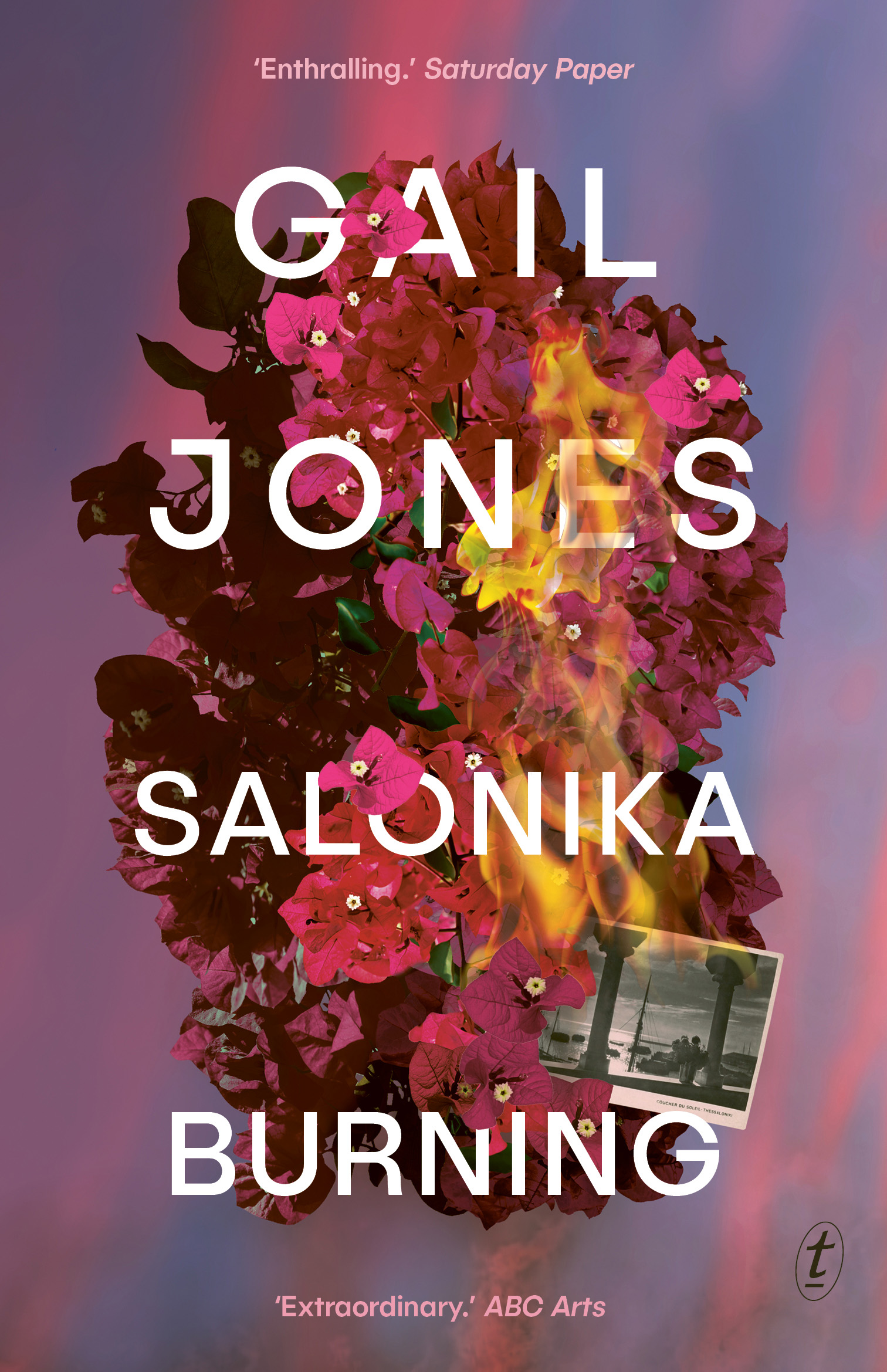Selected Staff Publications
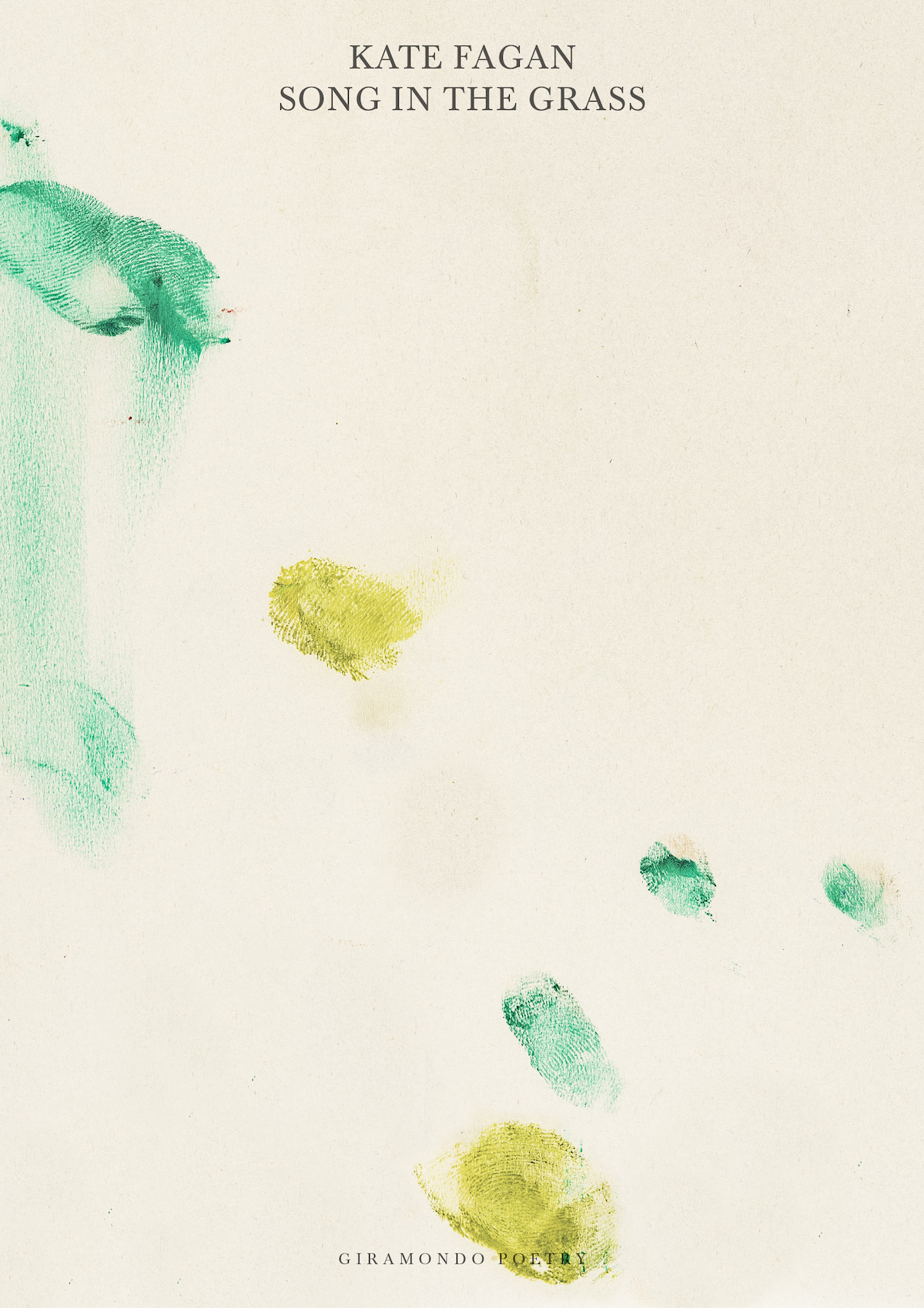 | Kate Fagan, Song in the Grass, Giramondo Publishing, 2024Song in the Grass is Kate Fagan’s most personal collection to date. Each of its five sequences moves out in a widening circle from where the poet is standing in life. The collection is an almanac of significant changes; in particular, new lives begun in the Blue Mountains during a transfiguring time of parenthood, against a backdrop of climate uncertainty. |
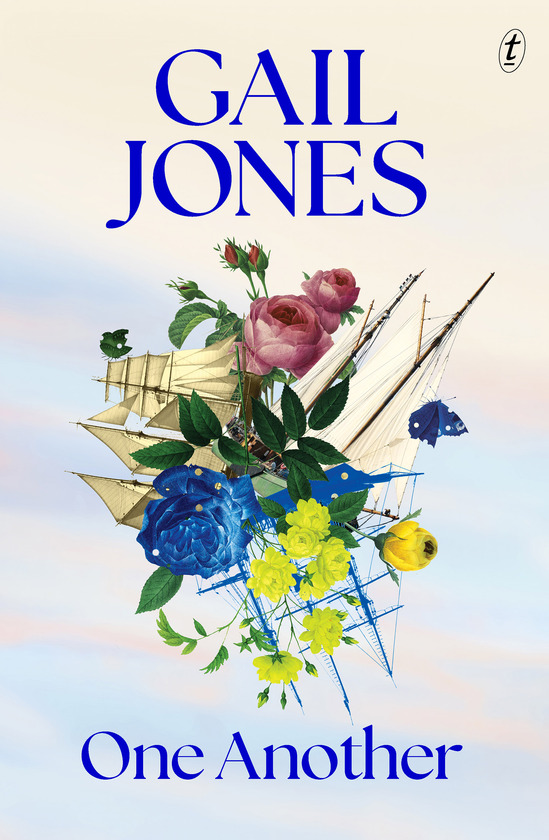 | Gail Jones, One Another, Text Publishing, 2024 At Cambridge, in the summer of 1992, Australian student Helen is completing her thesis on Joseph Conrad. But she is distracted by a charming and dangerous lover, Justin, and by a ghost manuscript, her anti-thesis, which she has left on a train. Gail Jones’s masterly new novel traverses the borders between art and life, between life and death, in a journey through literary history and emotional landscapes. Elegantly written, deftly crafted, One Another covers new territories of grief, memory and narrative. |
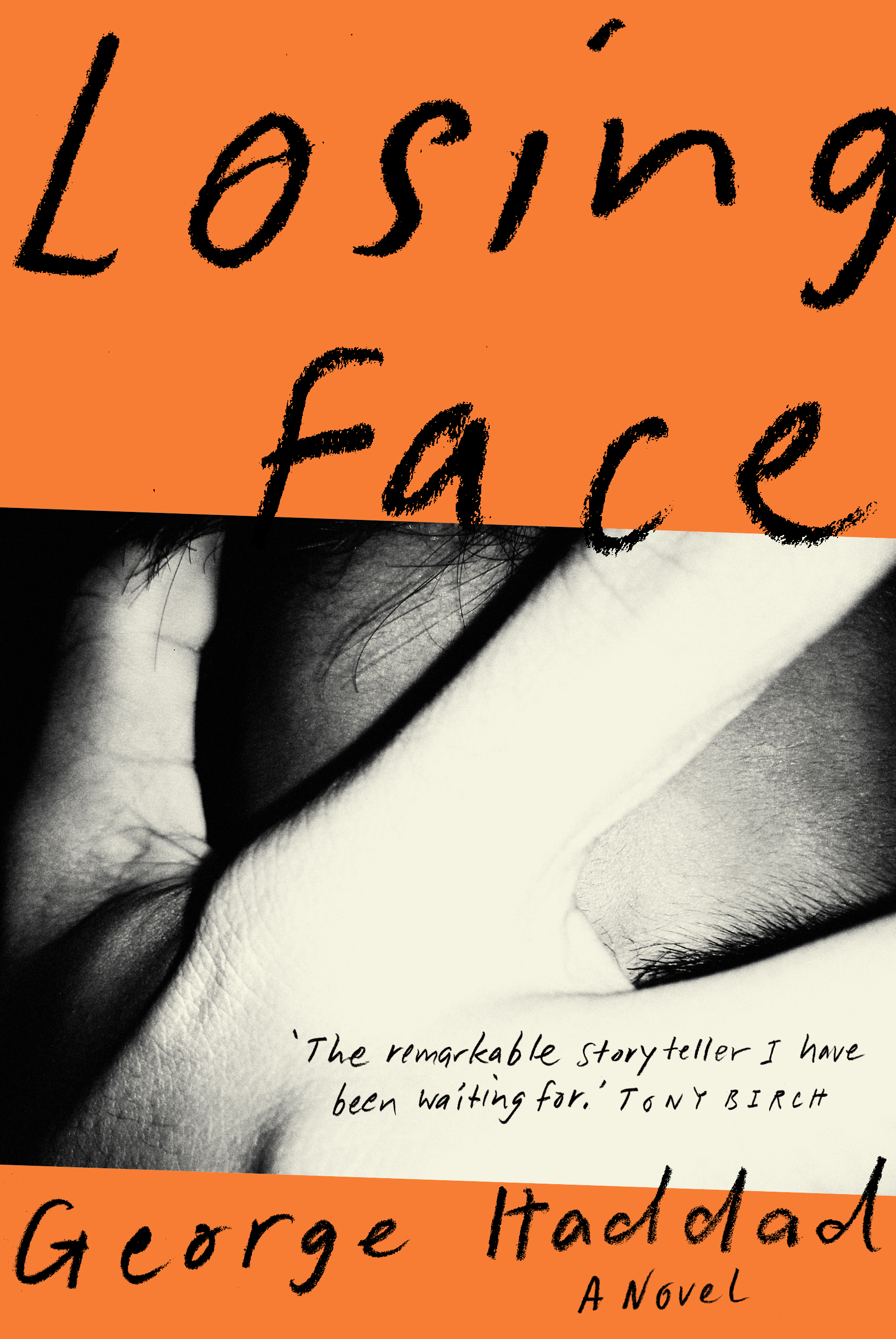 | George Haddad, Losing Face, University of Queensland Press, 2022Joey is young, indifferent. He’s drifting around Western Sydney unaware that his passivity is leading him astray. And then one day he is involved in a violent crime, one that threatens to upend his life entirely. Elaine, his grandmother, is a proud Lebanese woman with problems of her own. When Joey is arrested, she is desperate to save face and hold herself together. In her family, history repeats itself, vices come and go, and uncovering long-buried secrets isn’t always cathartic. This gripping and hard-hitting novel reveals the richness and complexity of contemporary Australian life and tests the idea that facing consequences will make us better people. |
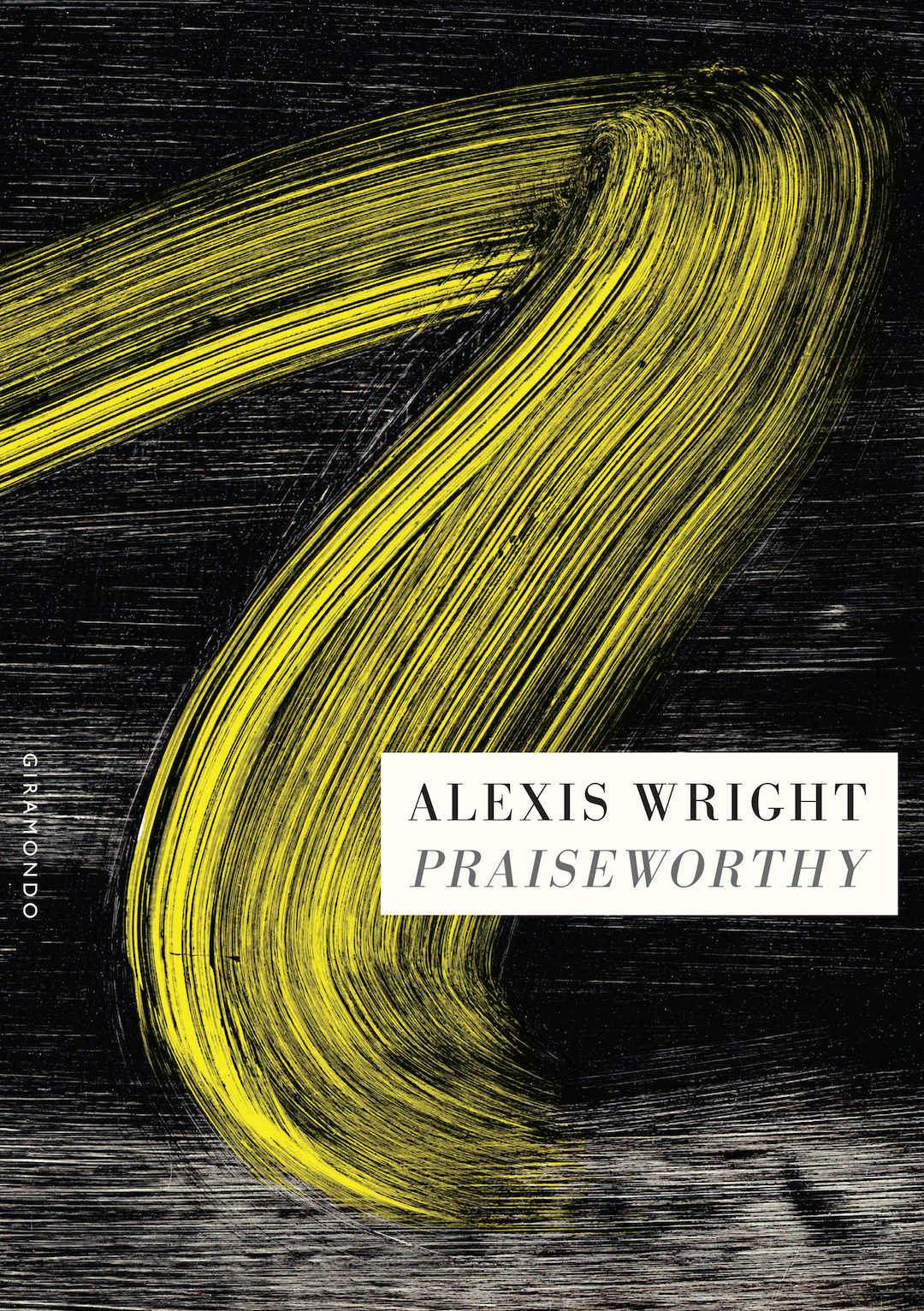 | Alexis Wright, Praiseworthy, Giramondo Publishing, 2023Praiseworthy is an epic set in the north of Australia, told with the richness of language and scale of imagery for which Alexis Wright has become renowned. In a small town dominated by a haze cloud, which heralds both an ecological catastrophe and a gathering of the ancestors, a crazed visionary seeks out donkeys as the solution to the global climate crisis and the economic dependency of the Aboriginal people. His wife seeks solace from his madness in following the dance of butterflies and scouring the internet to find out how she can seek repatriation for her Aboriginal/Chinese family to China. One of their sons, called Aboriginal Sovereignty, is determined to commit suicide. The other, Tommyhawk, wishes his brother dead so that he can pursue his dream of becoming white and powerful. This is a novel which pushes allegory and language to its limits, a cry of outrage against oppression and disadvantage, and a fable for the end of days. |
| Gail Jones, Salonika Burning, Text Publishing, 2023MACEDONIA, 1917. The great city of Salonika is engulfed by fire as all of Europe is ravaged by war. Amid the destruction are those who have come to the frontlines to heal: surgeons, ambulance drivers, nurses, orderlies and other volunteers. Four of them—Stella, Olive, Grace and Stanley—are at the centre of Gail Jones’s extraordinary new novel, which takes its inspiration from the wartime experiences of Australians Miles Franklin and Olive King, and British painters Grace Pailthorpe and Stanley Spencer. In Jones’s imagination these four lives intertwine and change, each compelled by the desire to create something meaningful in the ruins of a broken world. Immersive and gripping, Salonika Burning illuminates not only the devastation of war but also the vast social upheaval of the times. It shows Gail Jones to be at the height of her powers. |
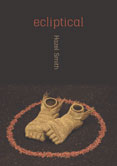 | Hazel Smith, ecliptical, Spineless Wonders, 2022ecliptical addresses contemporary psychological, ethical and philosophical issues including family secrets and tensions, private and public creativity, the enigma of time, surveillance, fake news, disease, environmental damage and homelessness. It evokes many iconic topics such as the Berlin Wall, Covid 19, Trump and Brexit. The volume extends Hazel Smith’s long-standing experimentation with language, genre and other media, and many poems are inspired by music, painting or film. ecliptical includes prose poetry and short prose; texts that are synaesthetic, sonic or linguistic explorations; surreal excursions and ‘bullet point’ adventures in which each line unveils a new observation. Other pieces employ non-literary forms or include documentary or remixed elements. ecliptical also flirts with the posthuman in some collaborative computer-assisted poems. |
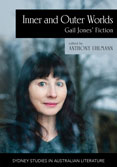 | Anthony Uhlmann (editor), Inner and Outer Worlds: Gail Jones’ Fiction, Sydney University Press, 2022This collection of essays offers reflections on Jones’ fiction by leading Australian and international literary critics. For readers who loved Sixty Lights, Five Bells, Sorry and Jones’ other novels, and for students of Jones’ work, this book will be an illuminating companion. With chapters on her use of language, her thematic preoccupations, and her place in local and global literary culture, it is a timely guide to the work of an exceptional Australian writer. |
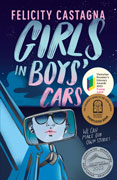 | Felicity Castagna, Girls in Boys’ Cars, Pan Macmillan 2021Winner of the 2022 Victorian Premier’s Literary Award for Writing for Young Adults Rosa was never really trying to hurt anyone, no matter what they said in court. But she's ended up in juvenile jail anyway, living her life through books and wondering why her best mate Asheeka disappeared. A page-turning novel about a complicated friendship; a road trip through NSW in a stolen car; the stories that define us; and two funny, sharp, adventurous young women who refuse to be held back any longer. |
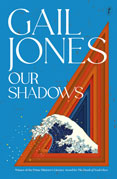 | Gail Jones, Our Shadows, Text Publishing 2020Our Shadows tells the story of three generations of family living in Kalgoorlie, where gold was discovered in 1893 by an Irish-born prospector named Paddy Hannan, whose own history weaves in and out of this beguiling novel. Sisters Nell and Frances were raised by their grandparents and were once closely bound by reading and fantasy. Now they live in Sydney and are estranged. Each in her own way struggles with the loss of their parents. Little by little the sisters grow to understand the imaginative force of the past and the legacy of their shared orphanhood. Then Frances decides to make a journey home to the goldfields to explore what lies hidden and unspoken in their lives, in the shadowy tunnels of the past. |
 | Dr Quah Ee Ling,Transnational Divorce: Understanding intimacies and inequalities from Singapore, Routledge 2020Transnational Divorce uncovers the stories of four main groups of transnational divorcees at the field site of Singapore, including low-income marriage migrant women from less wealthy countries, low-income citizen men, middle-class living apart together divorced parents and overseas-based citizen divorced mothers. Employing transnational, intersectional feminist perspectives, the book extends the author’s earlier conceptualisation of divorce biography to propose a new framework of transnational divorce biography. The transnational divorce biography framework provides readers a useful analytical tool to make sense of transnational divorced individuals’ messy experiences in working out their transborder intimacy practices. Meandering through their accounts, the author weaves together a strong narrative of inequalities and privileges at the site of intimate life. The book ends with an epilogue on fire dragon feminism where the author discusses place-based feminist mission of activism and resistance. |
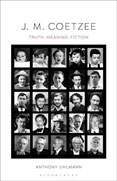 | Anthony Uhlmann, J. M. Coetzee: Truth, Meaning, Fiction', Bloomsbury Academic 2020J. M. Coetzee: Truth, Meaning, Fiction illuminates the intellectual and philosophical interests that drive Coetzee's writing. In doing so, it makes the case for Coetzee as an important and original thinker in his own right. Whilst looking at Coetzee's writing career, from his dissertation through to The Schooldays of Jesus (2016), and interpreting running themes and scenarios, style and evolving attitudes to literary form, Anthony Uhlmann also offers revealing glimpses, informed by archival research, of Coetzee's writing process. |
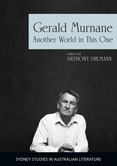 | Anthony Uhlmann (editor), Gerald Murnane: Another World in This One, Sydney University Press 2020Gerald Murnane: Another World in This One coincides with a renewed interest in his work. It includes an important new essay by Murnane himself, alongside chapters by established and emerging literary critics from Australia and internationally. Together they provide a stimulating reassessment of Murnane’s diverse body of work. |
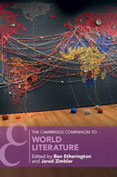 | Ben Etherington (co-editor with Jarad Zimbler), The Cambridge Companion to world Literature, Cambridge University Press 2018The Cambridge Companion to World Literature introduces the significant ideas and practices of world literary studies. It provides a lucid and accessible account of the fundamental issues and concepts in world literature, including the problems of imagining the totality of literature; comparing literary works across histories, cultures and languages; and understanding how literary production is affected by forces such as imperialism and globalization. The essays demonstrate how detailed critical engagements with particular literary texts call forth differing conceptions of world literature and, conversely, how theories of world literature shape our practices of reading. Subjects covered include cosmopolitanism, transnationalism, internationalism, scale and systems, sociological criticism, translation, scripts, and orality. This book also includes original analyses of genres and forms, ranging from tragedy to the novel and graphic fiction, lyric poetry to the short story and world cinema. |
 | Anthony Uhlmann, Saint Antony in his Desert, UWA Publishing, 2018A defrocked priest, Antony Elm, has made his way into a desert outside Alice Springs, where he intends to stay for forty days and forty nights. He is undergoing a crisis of faith and has brought with him the typescript for a book he has failed to finish about a meeting between Albert Einstein and the French philosopher Henri Bergson. This story concerns a crisis of understanding, as Bergson confronts Einstein about the meaning of time. On the back of his typescript Antony writes another story, somehow close to his heart, which concerns two young men traveling to Sydney from Canberra for the first time in the early 1980s. |
 | Gail Jones, The Death of Noah Glass, Text Publishing, 2018Winner of the 2019 Prime Minister’s Literary Award for Fiction The art historian Noah Glass, having just returned from a trip to Sicily, is discovered floating face down in the swimming pool at his Sydney apartment block. His adult children, Martin and Evie, must come to terms with the shock of their father’s death. But a sculpture has gone missing from a museum in Palermo, and Noah is a suspect. The police are investigating. |
Alexis Wright, Tracker, Giramondo, 2017Winner of the Stella Prize 2018 Alexis Wright returns to non-fiction in her new book, a collective memoir of the charismatic Aboriginal leader, political thinker and entrepreneur Tracker Tilmouth, who died in Darwin in 2015 at the age of 62.Taken from his family as a child and brought up in a mission on Croker Island, Tracker Tilmouth worked tirelessly for Aboriginal self-determination, creating opportunities for land use and economic development in his many roles, including Director of the Central Land Council of the Northern Territory. Tracker was a visionary, a strategist and a projector of ideas, renowned for his irreverent humour and his determination to tell things the way he saw them. The book is as much a testament to the powerful role played by storytelling in contemporary Aboriginal life as it is to the legacy of an extraordinary man. | |
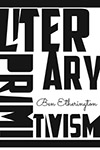 | Ben Etherington, Literary Primitivism, Stanford University Press, 2017This book fundamentally rethinks a pervasive and controversial concept in literary criticism and the history of ideas. Primitivism has long been accepted as a transhistorical tendency of the "civilized" to idealize that primitive condition against which they define themselves. In the modern era, this has been a matter of the "West" projecting its primitivist fantasies onto non-Western "others." Arguing instead that primitivism was an aesthetic mode produced in reaction to the apotheosis of European imperialism |
 | Christopher Peterson, Monkey Trouble: The Scandal of Posthumanism, Fordham University Press, 2017According to scholars of the nonhuman turn, the scandal of theory lies in its failure to decenter the human. The real scandal, however, is that we keep trying. The displacement of the human is essential and urgent, yet given the humanist presumption that animals lack a number of allegedly unique human capacities, such as language, reason, and awareness of mortality, we ought to remain cautious about laying claim to any power to eradicate anthropocentrism altogether. Such a power risks becoming yet another self-accredited capacity thanks to which the human reaffirms its sovereignty through its supposed erasure. |
 | Lorraine Sim, Ordinary Matters: Modernist Women’s Literature and Photography, Bloomsbury, 2016Ordinary Matters is the first major interdisciplinary study of the ordinary in modernist women's literature and photography. It examines how women photographers and writers including Helen Levitt, Lee Miller, Virginia Woolf and Dorothy Richardson envision the sphere of ordinary life in light of the social and cultural transformations of the period that shaped and often radically re-shaped it: for example, urbanism, instrumentalism, the Great Depression and war. |
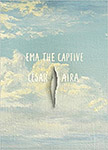 | Chris Andrews (translator), Ema the Captive by Cesar Aira, New Directions, 2016In nineteenth-century Argentina, Ema, a delicate woman of indeterminate origins, is captured by soldiers and taken, along with her newborn babe, to live as a concubine in a crude fort on the very edges of civilization. The trip is appalling (deprivations and rapes prevail along the way), yet the real story commences once Ema arrives at the fort. There she takes on a succession of lovers among the soldiers and Indians, before launching a grand and brave business. |
 | Anne Jamison, E. Œ. Somerville and Martin Ross: female authorship and literary collaboration, Cork University Press, 2016This book explores the remarkable collaboration of one of the most prominent and successful female literary partnerships at work in the late nineteenth century; Irish authors, Edith Somerville (1858–1949) and Violet Martin/Martin Ross (1862–1915). Based on extensive and original archival research, it reorients traditional thinking about Somerville and Ross’s partnership and rethinks the collaboration beyond a purely domestic and personal affair. |
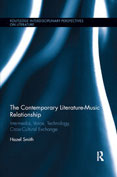 | Hazel Smith, The Contemporary Literature-Music Relationship, Routledge, 2016This book explores the relationship between words and music in contemporary texts, examining, in particular, the way that new technologies are changing the literature-music relationship. It brings an eclectic and novel range of interdisciplinary theories to the area of musico-literary studies, drawing from the fields of semiotics, disability studies, musicology, psychoanalysis, music psychology, emotion and affect theory, new media, cosmopolitanism, globalization, ethnicity and biraciality. Smith also inspects the dynamics of improvisation and composition, and the different ways they intersect with performance. |
 | Hazel Smith, Word Migrants, Giramondo, 2016Hazel Smith's new poetry collection engages in a direct way with contemporary political and social issues – civil war and the flight of populations, oppressive regimes and the disappearance of dissidents, the unpredictable effects of climate change – relating these issues to the personal experience of death and dementia, abuse and disability and childlessness. The poems project intense psychological states of indecisiveness, anxiety, disorientation and guilt, making use of surreal conjunctions and metaphor to dramatise the sense of unease. |
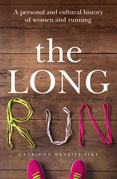 | Catriona Menzies-Pike, The Long Run, Affirm Press 2016Until very recently, it was frowned upon for women to run long distances. Running was deemed unladylike – and probably dangerous. How did women’s running go from being suspect to wildly popular? How does a high school klutz become a marathon runner? This fascinating book combines memoir and cultural history to explore the rich and contradictory topic of women and running. |
 | Gail Jones, A Guide to Berlin, Random House, 2015A group of six international travellers, two Italians, two Japanese, an American and an Australian, meet in empty apartments in Berlin to share stories and memories. Each is enthralled in some way to the work of Vladimir Nabokov, and each is finding their way in deep winter in a haunted city. A moment of devastating violence shatters the group, and changes the direction of everyone's story. A Guide to Berlin traces the strength and fragility of our connections through biographies and secrets. |
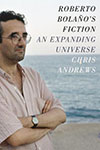 | Chris Andrews, Roberto Bolaño's Fiction An Expanding Universe, Columbia University Press, 2014Since the publication of The Savage Detectives in 2007, the work of Roberto Bolaño (1953-2003) has achieved an acclaim rarely enjoyed by literature in translation. Chris Andrews, a leading translator of Bolaño's work into English, explores the singular achievements of the author's oeuvre, engaging with its distinct style and key thematic concerns, incorporating his novels and stories into the larger history of Latin American and global literary fiction. |
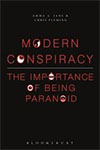 | Chris Fleming and Emma A. Jane, Modern Conspiracy: the importance of being paranoid, Bloomsbury, 2014Rather than seeing the imminent death of Enlightenment reason and a regression to a new Dark Age in conspiratorial thinking, Modern Conspiracy suggests that many characteristic features of conspiracies tap very deeply into the history of the Enlightenment: its vociferous critique of established authorities and a conception of political sovereignty fuelled by fear of counter-plots, for example. Perhaps, ultimately, conspiracy theory affords us a renewed opportunity to reflect on our very relationship to the truth itself. |
 | Matt McGuire, When Sorrows Come, Published by Constable & Robinson, 2014Belfast, 2am, Tomb Street. A young man lies dead in an alley. Cracked ribs, broken jaw, fractured skull. With the Celtic Tiger purring and the Troubles in their death throes, Detective Sergeant John O'Neill is called to investigate. Meanwhile O'Neill's partner, DI Jack Ward, a veteran troubles detective, is receiving death threats from an unknown source... When Sorrows Come is a brutal exposé of the criminal underworld in the new Northern Ireland. |
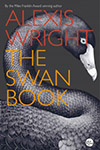 | Alexis Wright, The Swan Book, Giramondo, 2013Winner, ALS Gold Medal 2014 The Swan Book is set in the future, with Aboriginals still living under the Intervention in the north, in an environment fundamentally altered by climate change. The Swan Book has all the qualities which made Wright's previous novel, Carpentaria, a prize-winning best-seller. It offers an intimate awareness of the realities facing Aboriginal people; the energy and humour in her writing finds hope in the bleakest situations; and the remarkable combination of storytelling elements, drawn from myth and legend and fairy tale, has Oblivia Ethylene in the company of amazing characters like Aunty Bella Donna of the Champions. |
 | Anthony Uhlmann, Samuel Beckett in Context, Cambridge University Press, 2013When Samuel Beckett first came to international prominence with the success of Waiting for Godot, many critics believed the play was divorced from any recognizable context. The two tramps, and the master and servant they encounter, seemed to represent no one and everyone. Today, critics challenge the assumption that Beckett aimed to break definitively with context, highlighting images, allusions, and motifs that tether Becket's writings to real people, places, and issues in his life. |
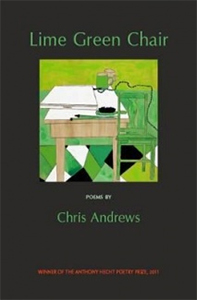 | Chris Andrews, Lime Green Chair, Waywiser Press, 2012Prompted by episodes from life in urban Australia, or dreamt about, or constructed from curious fragments of language, or, most often, produced in all three ways, the poems of Lime Green Chair (winner of the Anthony Hecht Poetry Prize, 2011) are the work of an entirely distinctive and highly original writer. The poems range in tone from the comic to the elegiac, and in form from the 231-syllable "expanded sonnets" of parts I and III to the "short-story" poems of part II. |
 | Matt McGuire, Dark Dawn: Killing in cold light, published by Corsair, 2012Acting Detective Sergeant John O'Neill stands over the body of a dead teenager. The corpse was discovered on the building site of a luxury development overlooking the River Lagan. Kneecapped then killed, the body bears the hallmarks of a punishment beating. But this is the new Northern Ireland - the Celtic Tiger purrs, the Troubles are over, the paramilitaries are gone. So who is the boy? Why was he killed? |
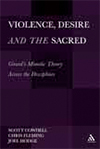 | Chris Fleming (co-editor), Violence Desire and the Sacred, Continuum, 2012Violence, Desire and the Sacred presents the most up-to-date inter-disciplinary work being developed with the ground-breaking insights of René Girard's mimetic theory. The collection showcases the work of outstanding scholars in mimetic theory and how they are applying and developing Girard's insights in a variety of fields. Girard's mimetic insight has provided a fruitful way for different disciplines, such as literature, anthropology, theology, religion studies, cultural studies, and philosophy, to engage on common anthropological ground, with a shared understanding of the human person. |
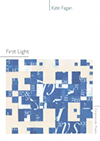 | Kate Fagan, First Light, Giramondo, 2012First Light observes the details of the world with curious and restive attention. It explores the threshold between things and words, seeking out places where music and language are equal in charting human experience. Some poems sample from other writers to create new works, often as gifts for friends. Some meditate on the tipping point between poetry and prose, or revisit established forms, such as sonnets and love letters, to stage a conversation between poetry and song. |
 | Anthony Uhlmann, Thinking In Literature, Continuum, 2011Thinking in Literature examines how the Modernist novel might be understood as a machine for thinking. It begins with a theoretical analysis, via Deleuze, Spinoza and Leibniz, of the concept of thinking in literature, and sets out three crucial elements to the process of developing an aesthetic expression: relation; sensation; and composition. Uhlmann then uses these elements to examine the aesthetic practice of three major Modernist writers: James Joyce, Virginia Woolf, and Vladimir Nabokov. |
 | Gail Jones, Five Bells, Random House, 2011On a radiant day in Sydney, four people converge on Circular Quay, site of the iconic Opera House and the Sydney Harbour Bridge. Each of the four is haunted by memories of the past: Ellie is preoccupied by her experiences as a girl, James by a tragedy for which he feels responsible, Catherine by the loss of her beloved brother in Dublin and Pei Xing by her imprisonment during China's Cultural Revolution. Told over the course of a single Saturday, Five Bells describes vividly four lives which chime and resonate. By night-time, when Sydney is drenched in a rainstorm, each life has been transformed. |
 | Melinda Jewell, The Representation of Dance in Australian Novels, Peter Lang Academic Publishers, 2011This book is an analysis of the textual representation of dance in the Australian novel since the late 1890s. It examines how the act of dance is variously portrayed, how the word 'dance' is used metaphorically to convey actual or imagined movement, and how dance is written in a novelistic form. |
 | Dimitris Vardoulakis, The Doppelganger, Fordham University Press, 2010This is the first significant study of the doppelgänger's influence on philosophical thought. Reading literature philosophically and philosophy as literature, Vardoulakis examines authors such as Franz Kafka, Maurice Blanchot, and Alexandros Papadiamantes and philosophers such as Immanuel Kant, Walter Benjamin, and Jacques Derrida to show how the doppelgänger emerges as a hidden element both in conceptions of subjectivity and in philosophy's relation to literature. |
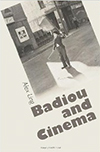 | Alex Ling, Badiou and Cinema, Edinburgh University Press, 2010Alex Ling employs the philosophy of Alain Badiou to answer the question central to all serious film scholarship: 'can cinema be thought?' Treating this question on three levels, the author first asks if we can really think what cinema is, at an ontological level. Secondly, he investigates whether cinema can actually think for itself; that is, whether or not it is truly 'artistic'. Finally, he explores in what ways we can rethink the consequences of the fact that cinema thinks.' In answering these questions, the author uses well-known films to illustrate Badiou's philosophy. |
 | Milissa Deitz, Watch This Space: The Future of Australian Journalism, Cambridge University Press, 2010With traditional print media sinking under shrinking readerships, redundancies and declining advertising revenue, the imminent death of 'quality' journalism is being prophesied by academics, publishers and journalists. Are we losing a vital public sphere for interrogating those in power and creating local and national communities? Or is a moribund media status quo getting a long overdue shake up? Milissa Deitz argues that far from being the grave digger, the internet is in fact reinventing and reinvigorating ‘citizen journalism’. |
 | Chris Andrew (translator), Monsieur Pain by Roberto Bolaño, New Directions, 2010Paris, 1938. The Peruvian poet César Vallejo is in the hospital, afflicted with an undiagnosed illness, and unable to stop hiccuping. His wife calls on an acquaintance of her friend Madame Reynaud: the Mesmerist Pierre Pain. Pain, a timid bachelor, is in love with the widow Reynaud, and agrees to help. But two mysterious Spanish men follow Pain and bribe him not to treat Vallejo, and Pain takes the money. Ravaged by guilt and anxiety, however, he does not intend to abandon his new patient, but then Pain's access to the hospital is barred and Madame Reynaud leaves Paris.... |
 | Lorraine Sim, Virginia Woolf: The Patterns of Ordinary Experience, Ashgate, 2010In her timely contribution to revisionist approaches in modernist studies, Lorraine Sim offers a reading of Virginia Woolf's conception of ordinary experience as revealed in her fiction and nonfiction. Contending that Woolf's representations of everyday life both acknowledge and provide a challenge to characterizations of daily life as mundane, Sim shows how Woolf explores the potential of everyday experience as a site of personal meaning, social understanding, and ethical value. |
 | Chris Andrews, translator Nazi Literature in the Americas by Roberto Bolaño, New Directions, 2009Chris Andrews has translated the first of Roberto Bolaño's books to reach a wide public. When it was published by Seix Barral in 1996, critics in Spain were quick to recognize the arrival of an important new talent. The book presents itself as a biographical dictionary of American writers who flirted with or espoused extreme right-wing ideologies in the twentieth and twenty-first centuries. It is a tour de force of black humor and imaginary erudition. |
 | Ehsan Azari, Lacan and the Destiny of Literature, Continuum, 2009In contemporary academic literary studies, Lacan is often considered impenetrably obscure, due to the unavailability of his late works, insufficient articulation of his methodologies and sometimes stereotypical use of Lacanian concepts in literary theory. This study aims to integrate Lacan into contemporary literary study by engaging with a broad range of Lacanian theoretical concepts, often for the first time in English, and using them to analyse a range of key texts from different periods. |
 | Hazel Smith, The Erotics of Geography, Tin Fish Press, 2008Hazel Smith, author of the creative writing text, The Writing Experiment, shows us how it's done in this spirited book of performance poems, collages, elegies, meditations, explorations of gossip, uncertain identities, bodies and the city, to say nothing of "acts of omission." An accompanying cd-rom includes new media and performance works by Hazel Smith and Roger Dean. |
Chris Andrews, translator Amulet by Roberto Bolaño, published by New Directions 2008Amulet is a monologue, like Bolaño's acclaimed debut in English, By Night in Chile. The speaker is Auxilio Lacouture, a Uruguayan woman who moved to Mexico in the 1960s, becoming the "Mother of Mexican Poetry," hanging out with the young poets in the cafés and bars of the University. She's tall, thin, and blonde, and her favorite young poet in the 1970s is none other than Arturo Belano (Bolaño's fictional stand-in throughout his books). | |
 | Gail Jones, Sorry, Vintage Australia, 2007In the remote outback of Western Australia during World War II, English anthropologist Nicholas Keene and his wife, Stella, raise a lonely child, Perdita. Her upbringing is far from ordinary: in a shack in the wilderness, with a distant father burying himself in books and an unstable mother whose knowledge of Shakespeare forms the backbone of the girl's limited education. Emotionally adrift, Perdita becomes friends with a deaf and mute boy, Billy, and an Aboriginal girl, Mary. Perdita and Mary come to call one another sister and to share a very special bond. |
 | Chris Peterson, Kindred Specters, University of Minnesota Press, 2007Probing Derrida's notion of spectrality as well as Orlando Patterson's concept of "social death," Christopher Peterson examines how death, mourning, and violence condition all kinship relations. Tracing the connections between kinship and mourning in American literature and culture, Peterson argues that socially dead "others" can be reanimated only if we avow the mortality and mourning that lie at the root of all kinship relations. |
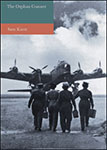 | Sara Knox, The Orphan Gunner, published by Giramondo, 2007The Orphan Gunner is an unconventional romance set in bomber command in Lincolnshire during the Second World War. Evelyn and Olive grew up together in the Canabolas Valley near Orange. They are in England at the outbreak of war: Evelyn as a pilot in the Air Transport Auxiliary, Olive in the Women's Auxiliary Air Force. They're joined by Evelyn's brother Duncan, a novice gunner in Lancaster L-Love, flying bombing raids over Germany. |
 | Alexis Wright, Carpentaria, Giramondo, 2006Winner, Miles Franklin Literary Award 2007 This novel's portrait of life in the precariously settled coastal town of Desperance centres on the powerful Phantom family, leader of the Westend Pricklebush people, and its battles with old Joseph Midnight's renegade Eastend mob on the one hand, and the white officials of Uptown and the neighbouring Gurfurrit mine on the other. Wright's storytelling is operatic and surreal: a blend of myth and scripture, farce and politics. The novel teems with extraordinary characters. |
 | Anthony Uhlmann, Samuel Beckett and the Philosophical Image, Cambridge University Press, 2006Beckett often made use of images from the visual arts and readapted them, staging them in his plays, or using them in his fiction. Anthony Uhlmann sets out to explain how an image differs from other terms, like 'metaphor' or 'representation', and, in the process, to analyse Beckett's use of images borrowed from philosophy and aesthetics. This study, first published in 2006, carefully examines Beckett's thoughts on the image in his literary works and his extensive notes to the philosopher Arnold Geulincx. |
 | Hazel Smith,The Writing Experiment, published by Allen & Unwin, 2005The Writing Experiment demystifies the process of creative writing, showing that successful work does not arise from talent or inspiration alone. Hazel Smith breaks down writing into incremental stages, revealing processes that are often unconscious or unacknowledged, and shows how they can become part of a systematic writing strategy. |
